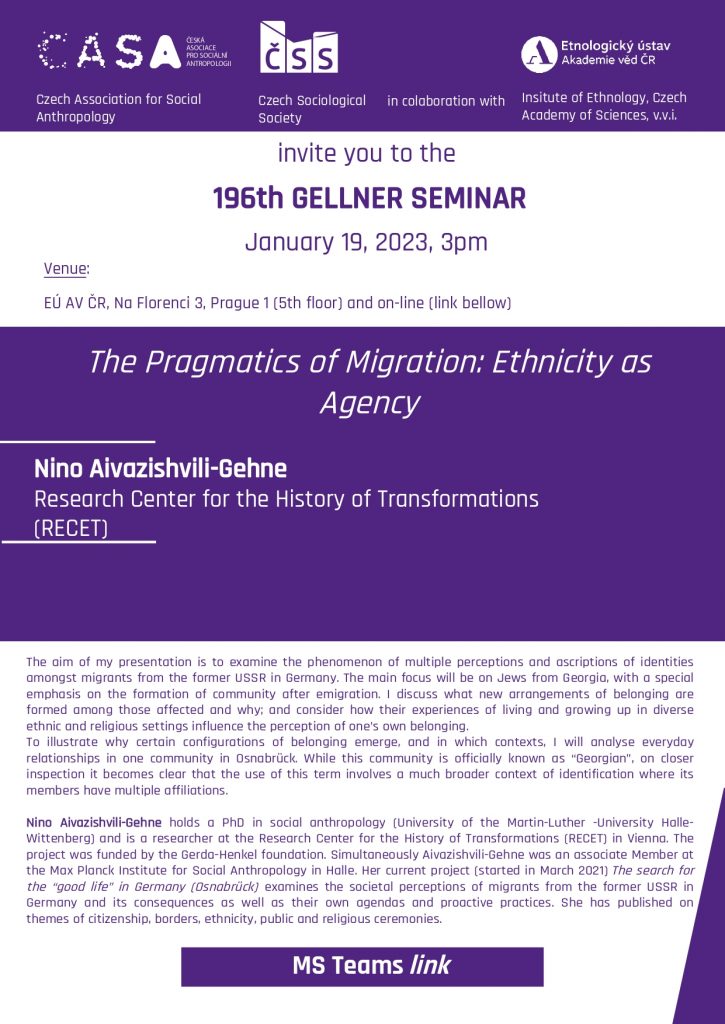
odkaz pro připojení přes Zoom naleznete v PDF souboru
Abstrakt
The aim of my presentation is to examine the phenomenon of multiple perceptions and ascriptions of identities amongst migrants from the former USSR in Germany. The main focus will be on Jews from Georgia, with a special emphasis on the formation of community after emigration. I discuss what new arrangements of belonging are formed among those affected and why; and consider how their experiences of living and growing up in diverse ethnic and religious settings influence the perception of one’s own belonging. To illustrate why certain configurations of belonging emerge, and in which contexts, I will analyse everyday relationships in one community in Osnabrück. While this community is officially known as “Georgian”, on closer inspection it becomes clear that the use of this term involves a much broader context of identification where its members have multiple affiliations.
Bio
Nino Aivazishvili-Gehne holds a PhD in social anthropology (Martin Luther University Halle-Wittenberg) and is a researcher at the Research Center for the History of Transformations (RECET) in Vienna. The project was funded by the Gerda-Henkel foundation. Simultaneously, Aivazishvili-Gehne was an associate Member at the Max Planck Institute for Social Anthropology in Halle. Her current project (started in March 2021) The search for the “good life” in Germany (Osnabrück) examines the societal perceptions of migrants from the former USSR in Germany and its consequences as well as their own agendas and proactive practices. She has published on themes of citizenship, borders, ethnicity, public and religious ceremonies.